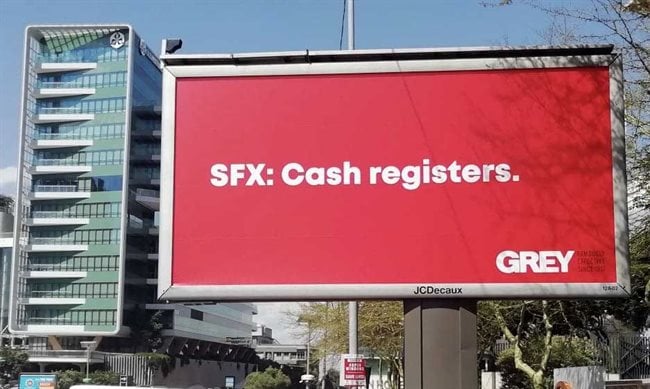
Subscribe & Follow
Jobs
- Middle Media Sales Executive - OOH Gauteng, Johannesburg
- Media Branding Consultant - OOH Johannesburg
Every agency dispenses advice, but it's a rare one that heeds it

It manifested in the dodgy deals financial advisers were seemingly queuing up to sell to unsuspecting clients, in all manner of fancy but opaque financial ‘instruments’, even when the brokers had to have known that the mortgages that underpinned those instruments and on which any sort of dividend relied, had about as much chance of ever being paid as an ice merchant in Alaska.
It manifests regularly in the short-term insurance industry, where drivers unconsciously take more chances than usual, safe in the knowledge their insurance will cover any damage.
And it manifests in advertising too. Every time we tell a client they should take more risks – that the greater the risk, the greater the reward. Try it. See how easily it rolls off the tongue? That’s because it’s not our money we’re proposing gambling with. As one strategist put it, “Everything’s easy when someone else is paying for it.”
Downturns and budget cuts
This lack of skin in the game on our part creates an unfortunate credibility gap, especially when our advice involves the client spending more money. And what makes it doubly unfortunate is that even demonstrably sound advice is treated with circumspection. Never has this been more apparent than during 2020, the year of lockdowns, restrictions and personal, financial and health crises.
I doubt there’s an advertising agency in the country that didn’t have to deal with clients cutting their budgets in the months following our first descent into lockdown. Ad spend plummeted across most categories and brand building initiatives ground to a halt, despite all our advice to the contrary.
But of course, we’d advise to the contrary, wouldn’t we? We’re ad agencies, after all. Well, yes, but not for those reasons.
In the subjective world of advertising, the argument around whether or not to advertise during a recession is probably about as close as we’ll ever come to a ‘settled’ debate or to anything resembling an indisputable fact. There’s over a century of research and evidence all pointing to the benefits of advertising during a downturn and, consequently, to the negative effects of pulling advertising during such a period.
But this evidence seldom gets an airing beyond the desks in the planning department, serving no purpose other than to clog up strategists’ hard drives in the vain hope that one day somebody will see the argument and its indisputable truths. Instead, because of moral hazard, because we don’t have ‘skin in the game’, our recommendations are often seen as self-interest rather than impartiality.
So, we decided to see for ourselves; to put some skin in the game.
Putting our money where our mouth is
Armed with the current research from the Scopen Agency Study, detailing exactly our brand’s strengths and weaknesses relative to our competitors, we set ourselves some marketing and advertising objectives and wrote ourselves a creative brief, just the same as we would for any other brand in our portfolio. We then seeded these OOH adverts for our own brand on JC Decaux billboards strategically placed around the northern suburbs of Johannesburg to catch the eye of clients and agency staff.
These billboard creatives are the product of the same creative processes, the same reviews and the same budgetary constraints as we experience on all brands. We’re doing for our own brand exactly what we do for our client brands on a daily basis.
Although, it has to be said, this client certainly takes the cake when it comes to ‘difficult.’
Focusing on the future and beyond
Will people like the campaign? Some will. We think the boards are, if nothing else, amusing and will trigger a bit of playful rivalry with other agencies.
Will people hate the campaign? Some will. Without a doubt. This is advertising after all and, if you haven’t yet learnt that trying to please everyone is a mug’s game, you might want to reconsider your career choices.
Most importantly, will it work? While we’re hardly going to publicise our specific objectives for all our competitors to see (at least, not until Effies 2021 anyway), but let’s suffice to say that the campaign has three chances at success. If it attracts new clients to our brand, it works. If it attracts new talent to our brand, it works. And If it succeeds in dispelling the myth that agencies act out of self-interest in the mind of just one client, it works. We also know that no campaign delivers immediate results, which is why continuous presence is so important.
Either way, any of these three results might just make those budget chats a little easier.
As we enter year two of the pandemic and brands continue to operate under financial constraints while competing for customer awareness and loyalty, we know how important it is to remain visible. It’s time we all put some skin into this game.


















